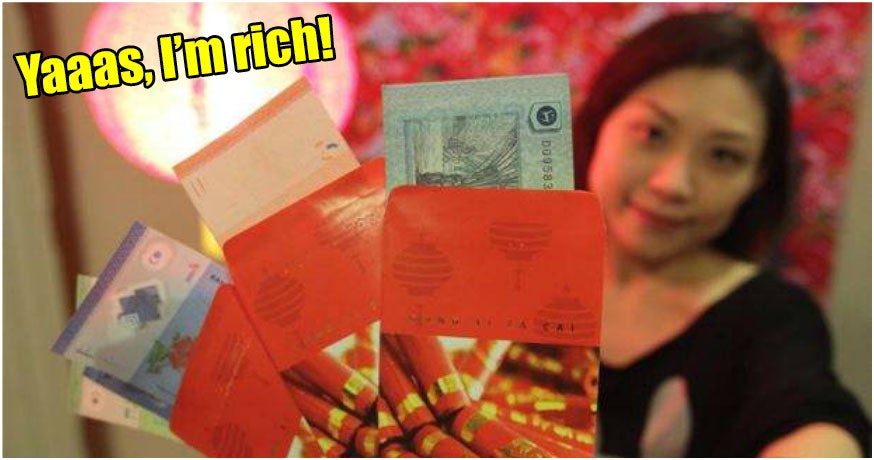With Chinese New Year fast approaching, there are countless traditions, meals, gatherings, events, and activities that we can all look forward to; and for those of us who aren’t married, we can look forward to collecting ang pows again! Whoever said being #ForeverAlone was a bad thing?
Speaking of ang pows, although it’s something we’ve been collecting since forever, how much do we really know about these red packets other than the fact that they contain money? Exactly, not much. Well, here are some FAQs and important facts you should know about CNY ang pows:
1. When/where/how did CNY ang pows start becoming a thing?
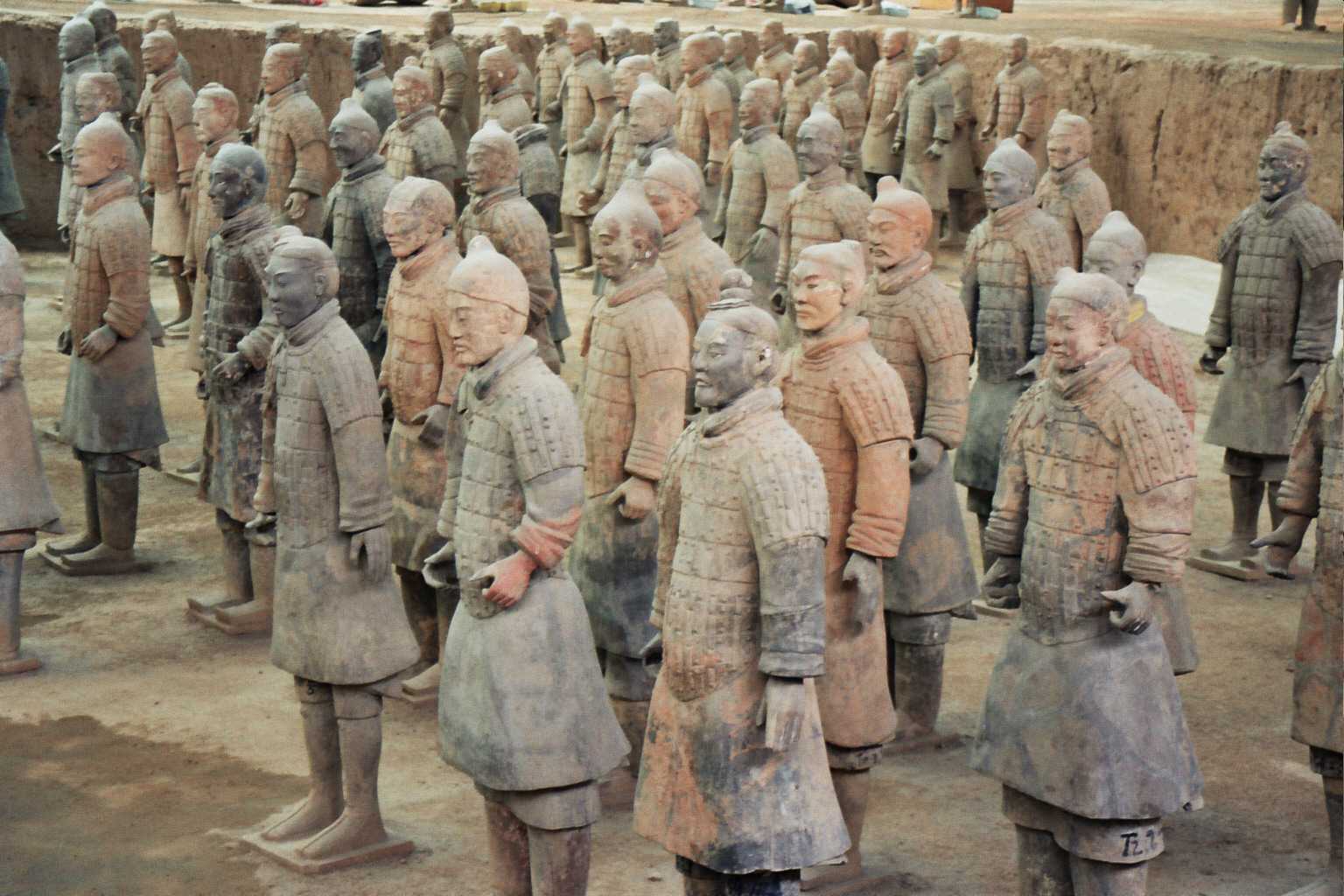
Source: thejourneys
The story dates back to the Qin Dynasty (221 – 206 BC). According to legends, it is believed that on New Year’s eve, a demon called “Sui” would go around terrifying little children. Sui would go around touching little children’s heads and this would cause them to fall gravely ill, while some even died.
One day, a worried couple decided to pray to their god to protect their child. Hearing their pleas, this god sent eight fairies to watch over the child. They came in the form of eight coins. These coins were wrapped in red paper and placed under the child’s pillow.
When everyone in the household had fallen asleep, Sui made its way to the child but a bright light emitted from the coins and scared the demon away; and thus began the tradition of giving and receiving ang pows.
2. What’s the significance of receiving ang pows on CNY?
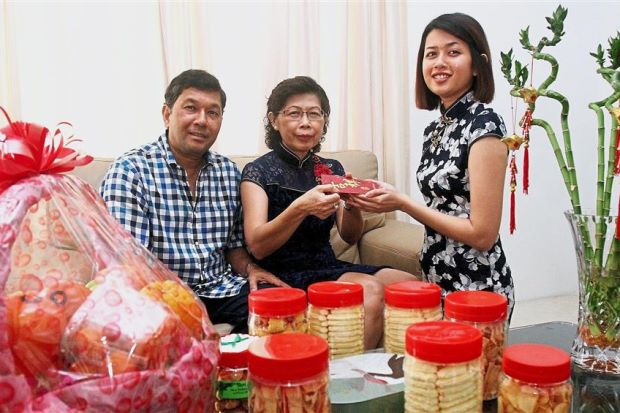
Source: the star
By now, you would’ve probably realised that Chinese people absolutely love the colour red, especially during CNY. Mainly because red symbolises energy, luck and happiness. Hence, giving of red ang pows would mean sending good wishes and luck someone’s way.
Additionally, in China, ang pows or red packets are also called ya sui qian (压岁钱), meaning ‘suppressing ghost money’, and to give someone a red packet would be to wish them another safe and peaceful year – just like that story about Sui and the eight fairies!
3. How much are we supposed to give in an ang pow?
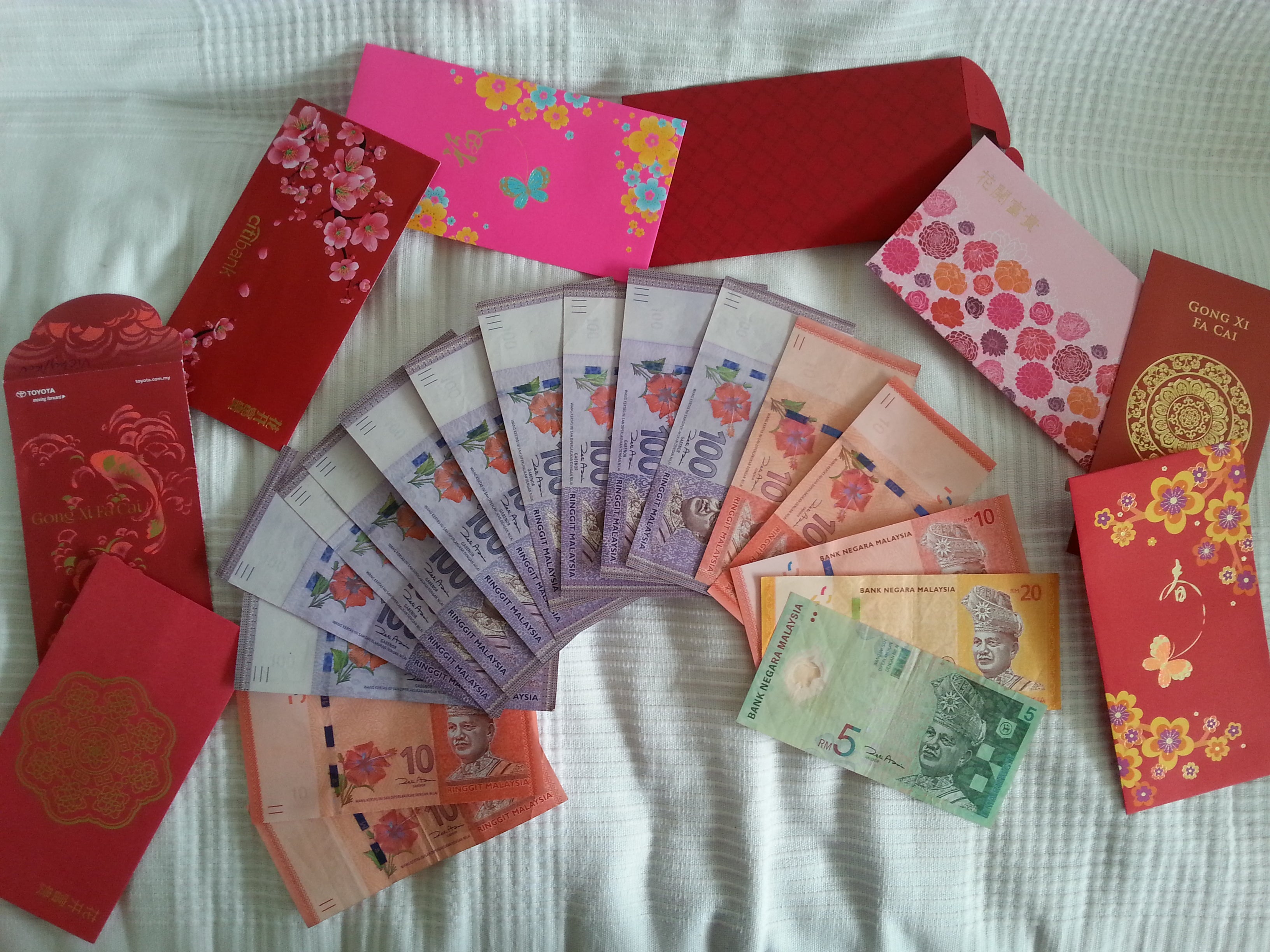
Source: cleanfooddirtygirl
Here’s the tricky part.
During CNY, you’ve probably heard your parents discussing among themselves about how much they should give different people; well, wonder no more! Here’s how much individuals in the middle income group generally give to:
- Own children: RM50 – RM100 (some even give up to RM388 or more)
- Parents or in-laws: RM88 – RM188 (some even give up to RM388 or more)
- Children of friends or relatives: RM5 – RM10
- Young grandchildren: RM8 – RM38
Ultimately, this is just a rough guide and it’s totally up to you how much you intend on giving. Don’t be obligated to give more than you have though!
4. Can I give out ang pows if I’m 40 years old but still NOT married?
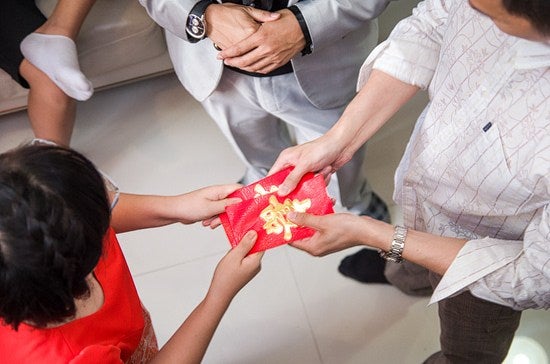
Source: actualdayphotographer
Traditionally, only married couples give out ang pows. However, times are changing and many working, unmarried individuals do give out ang pows to the elderly as well, especially to their own parents or close relatives.
5. What if I’m 40 but still NOT married, can I still accept ang pows?
There generally is no age limit for ang pow receiving. So, go forth and collect to your heart’s content! However, most individuals are more inclined to giving ang pows to younger children, or the elderly, so don’t be shocked if married couples your age don’t give you anything!
6. What are some major ang pow do’s and don’ts to take note of?
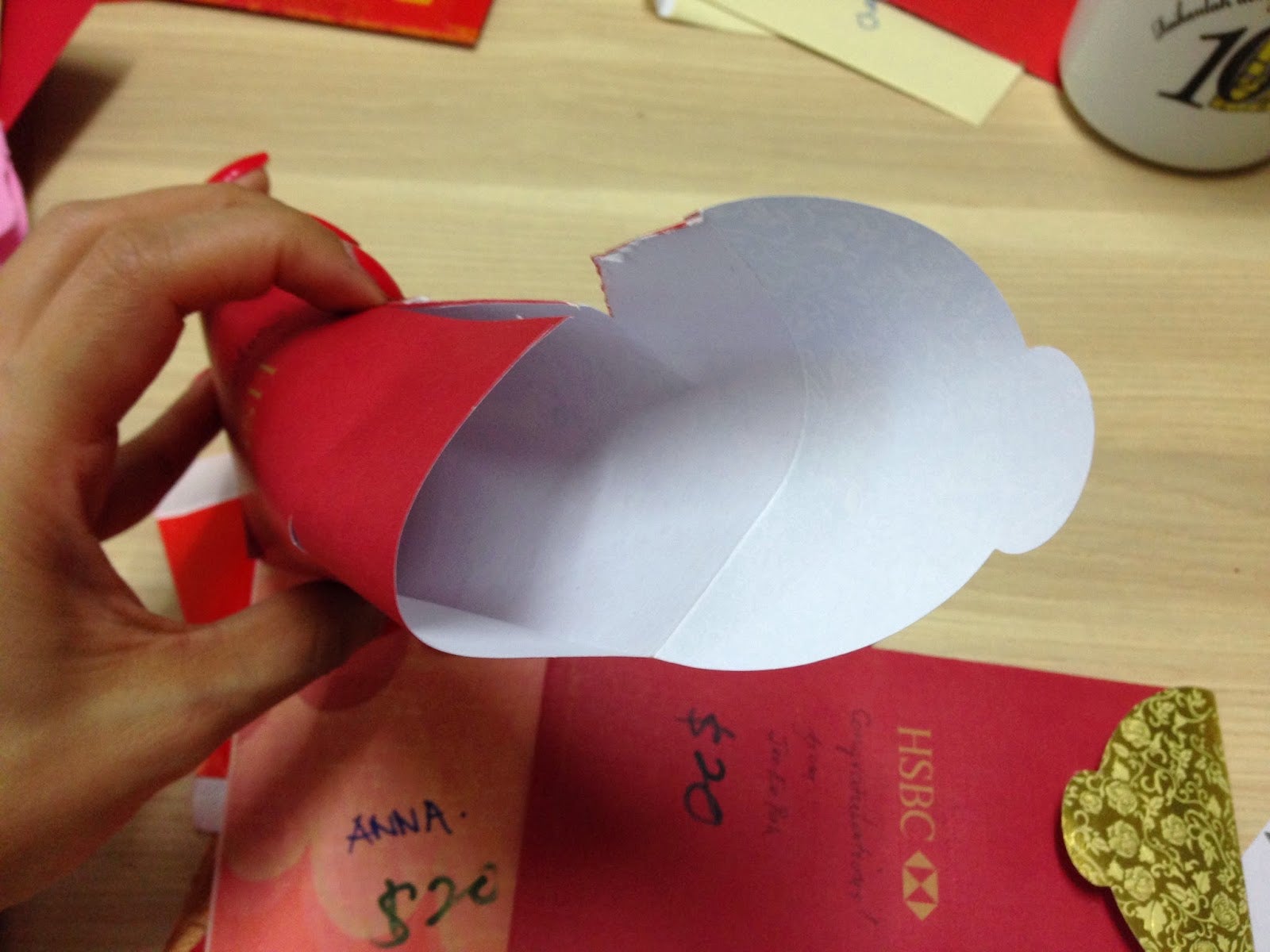
Source: thirddotter
In case you’re absolutely clueless about Chinese New Year and ang pow traditions, here’s what you should do when:
Giving out ang pows
- Traditionally, red-coloured ang pows are used, but now, gold, yellow and orange ang pows are accepted too
- Use new, crisp notes. Old, wrinkly notes are just not cool
- Avoid inserting coins
- Avoid amounts that have the number four (4) in them, like RM4, RM14, RM40, and so forth
Receiving ang pows
- Accept with both hands. It’s common courtesy!
- Remember to greet the giver with an auspicious CNY phrase (not “ang pow na lai” obviously), and say thank you!
- Do not open your ang pow in front of the giver. Do it in private!
Well, that’s all the ang pow facts we have for now. We hope this article gave you a better understanding of Chinese New Year ang pow traditions and all the things you should and shouldn’t do. But remember, CNY isn’t just about ang pows! It’s about quality time spent with friends and family.
With that, we at WORLD OF BUZZ would like to wish you and your families a happy and prosperous Chinese New Year! Gong Xi Fa Cai!
Also read: M’sians to Pay for Expensive Seafood This CNY, Here’s the Price Range

